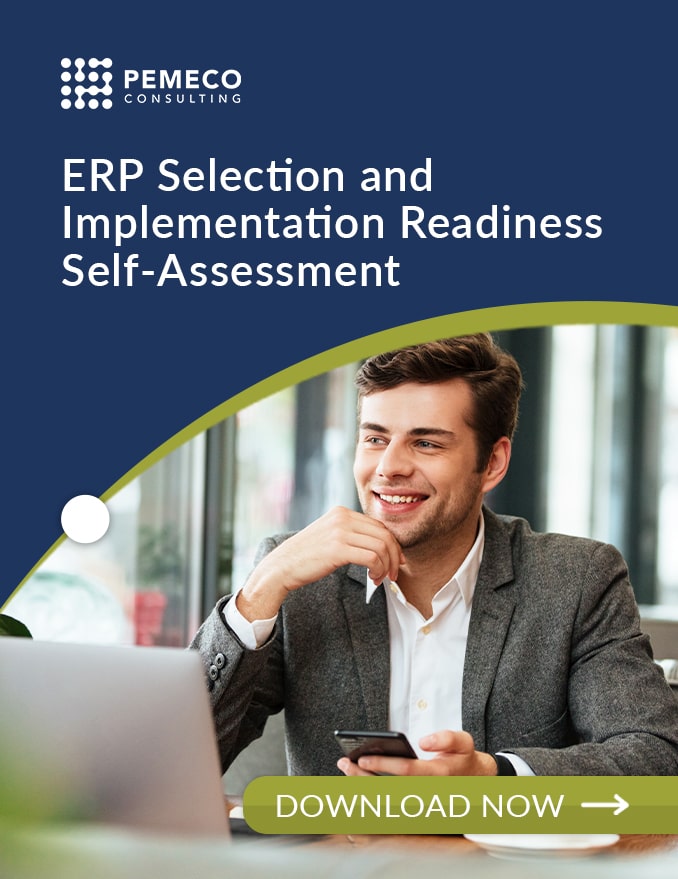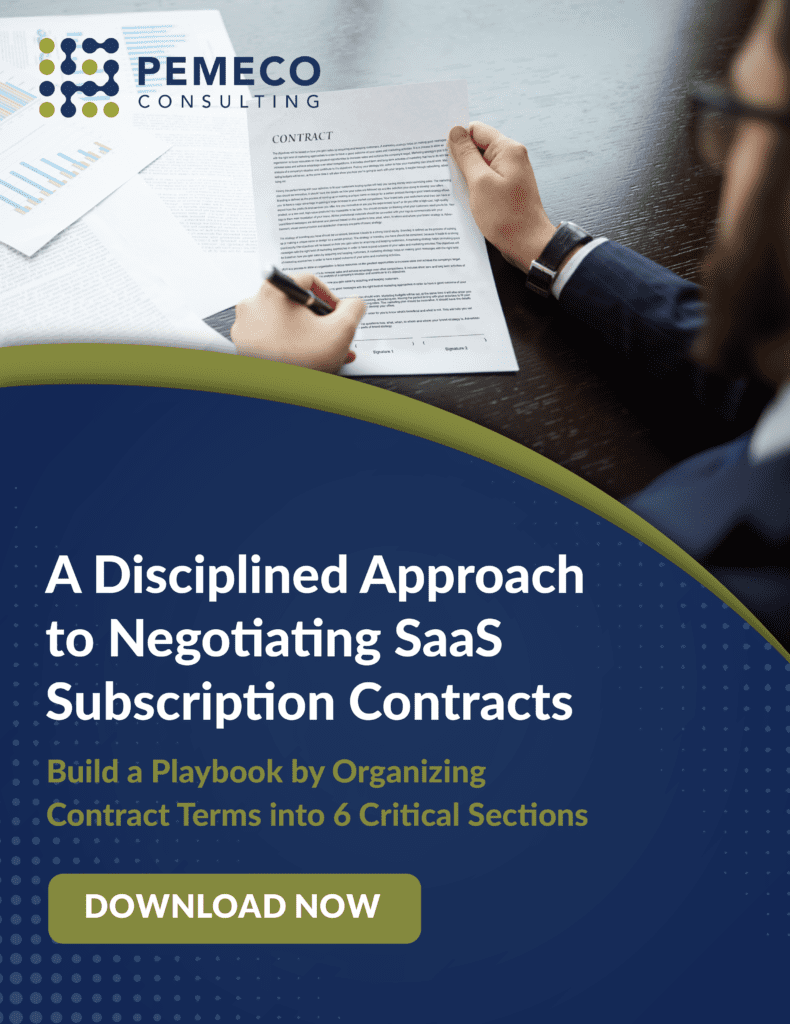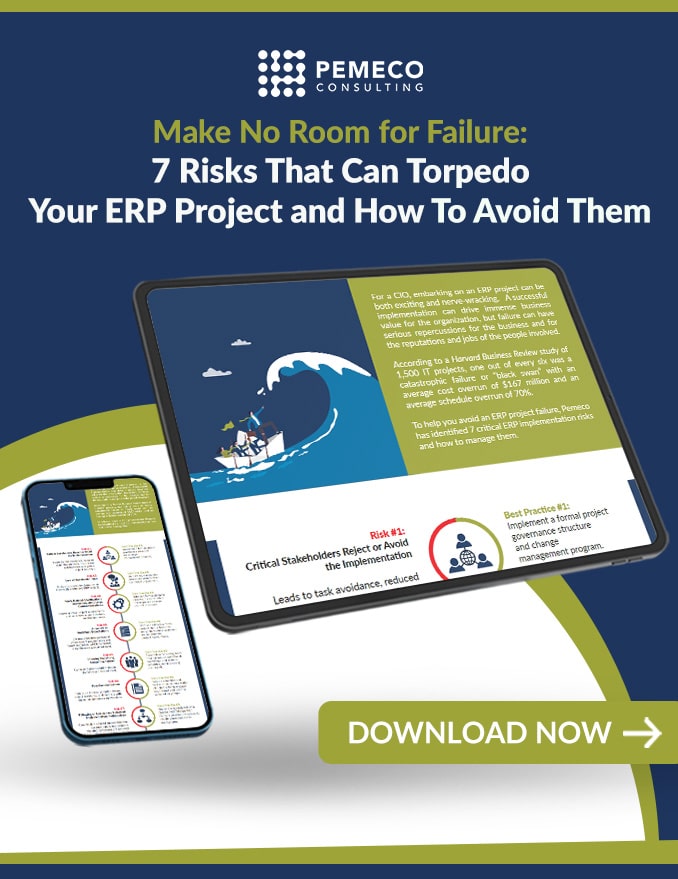A modern enterprise resource planning (ERP) system is critical to many digital transformation initiatives. But the technology’s pervasive impact means you must address several critical dimensions during the ERP implementation process—process reengineering, organizational change management, data migration, and training, to name a few. Those who don’t often spend more time and money after go-live recovering and trying to reach a steady state.
There’s no shortcut to achieving ERP implementation success—you pay the price now or later. But you’ll pay much more later to fix issues after the fact, particularly if you’ve cutover before your organization is ready.
In other words, proper preparation can make or break your ERP implementation project. Assuring ERP implementation readiness allows you to hit the ground running at kickoff with a solid foundation. Ultimately, the upfront work will pay dividends at the end—helping you transition from the existing system to the new platform with sufficient user adoption and mitigated risks.
Getting ready for ERP implementation demands a multi-faceted approach: project teams and governance, organizational structure, scoping, contracting, business process design, and more. Through all of it, there are four key components to consider as you assess your ERP implementation readiness.
4 Key Areas of ERP Implementation Readiness
We’ve successfully delivered more than 800 implementation projects and have helped countless additional clients select and prepare for implementation. Over the years, we have identified four common themes that continue to emerge pre-implementation that, if addressed before kickoff, significantly increase the prospects of successful delivery.
1. Corporate and Organizational Design. Proper ERP implementation requires the participation of the entire enterprise. Your organizational structure determines how business processes flow through the company, and you must have the right people in the right place to perform the right function.
As such, you should revisit your organizational structure to align job functions with best practices, update job descriptions to set the right expectations, and train internal resources or hire new employees to fill skill gaps. It’s also critical to align HR with your initiative to get support in filling critical roles.
2. Data Migration. Data migration is a common challenge in ERP implementation. As part of pre-implementation ERP readiness, take inventory of your existing data, ensure their cleanliness (i.e., accurate, consistent, and complete), enrich them when necessary, and structure the information to support analyses, reporting, and decision-making. It’s also critical to prevent data corruption or loss during the ERP implementation process.
To facilitate migration, establish a master data management strategy and set up a centralized data repository as a single source of truth that will ensure critical data are consistent across the organization. Define data ownership to support data governance and ensure data integrity, promoting trust in data throughout the organization.
3. Business Processes. An ERP system is used by multiple departments and affects various business processes, from finance and supply chain management to human resources and project management. Review your current workflows and implement fundamental process changes before ERP implementation, allowing enough time for employees to adapt before the transition.
For example, some of our clients have re-engineered their warehouse or manufacturing operations and implemented the changes well in advance to ensure everything would work seamlessly for the new ERP software. Phasing in certain changes before ERP implementation can facilitate organizational change management and user adoption.
4. Project Teams and Governance. A high-performance team is the linchpin for ERP implementation success. It should consist of a steering committee with C-level executives, a project manager, a solution architect, and a core team comprised of selected subject-matter experts from various departments. Assign specific responsibilities to team members and align them with well-defined goals.
It’s essential to foster a collaborative and innovation-driven environment while supporting governance and oversight with a structured decision-making process. Maintain transparency through open communication and establish effective, decisive methods to resolve conflicts and minimize delays.
Get Your Business Ready to Successfully Deliver a Complex ERP Implementation Project
Getting ready for ERP implementation is a critical success factor. It requires specialized knowledge and extensive experience in project management, organizational change management, data architecture, and business process design.
Partnering with a reputable ERP implementation service firm like Pemeco helps you take the guesswork out of the process. As the only firm with an impeccable ERP implementation track record, we’ll make sure your project starts on the path to success. Learn more about our ERP implementation services and contact us today.







